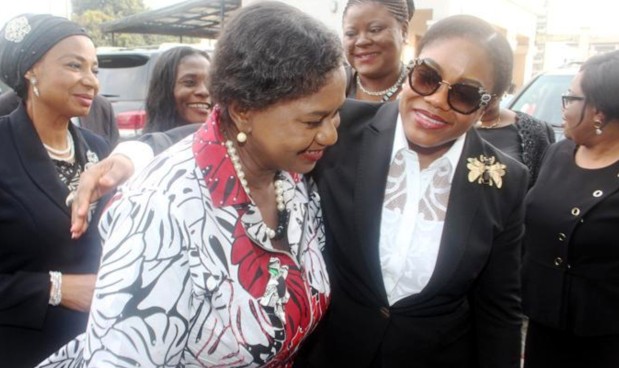News
Obasanjo Faults FG On School Feeding

Former President, Chief Olusegun Obasanjo has condemned the Federal Government’s involvement in the school feeding programme, saying it is essentially a programme that the states should execute.
Obasanjo stated this in an interview with newsmen at the venue of the World Food Prize in Iowa, United States, recently.
The President, African Development Bank and a former Minister of Agriculture, Dr. Akinwumi Adesina, was on the occasion, awarded the 2017 laureate of the World Food Prize, where Obasanjo was in attendance.
The Federal Government had said in September that over N6.2billion had been paid to 14 states as part of efforts to meet its target of feeding three million primary school children in 2017 under the National Homegrown School Feeding Programme (NHSFP).
In a statement, the Senior Special Assistant on Media and Publicity to the Vice President, Laolu Akande, had listed Anambra, Enugu, Oyo, Osun, Ogun, Ebonyi, Zamfara, Delta, Abia, Benue, Plateau, Bauchi, Taraba and Kaduna as the benefitting states.
He added that the amount was expended during the school year ending August, 2017.
Akande, however, noted that one million school children had been added to the programme from three states — Cross River, Akwa Ibom and Niger — bringing the total number of participating states to 17.
So far, 4,773,064 school children in 25,771 schools in 17 states are currently benefitting from the feeding programme, the government explained.
Although Obasanjo commended the Federal Government for its initiative, he argued that school feeding programmes should be left to state governments to handle.
The ex-president stated, “Any programme that will enhance food intake, particularly of the youth, and will help them in their growth, vitality, and in giving them better nutrition, I would regard as a good programme. (As president) I encouraged it. It is not supposed to be a Federal Government programme.
“If I remember correctly, I think Nasarawa State had a similar programme which was good; Kano State had one which was good. I think one of the states in the South-West also had one. But it was not a Federal Government-driven programme. It was initially a state programme that was encouraged and assisted (by the Federal Government) as much as possible in the past.
“It is not a Federal Government programme; it should not be. Any state that wants to go into it must be ready to go into it and any state that goes into it must make it a success, otherwise it is not useful.
“I went to a mission school, and in my third year, we had what they called ‘midday meal,’ which was tremendously appreciated, and, I believe, it helped because some of the children didn’t even have what they could call one square meal a day.
“The school provided one good meal, which was good for them. And that was only at the school level, not even at the community level. It was not at the city level, not to talk of district level. So, I would say that any state that wants to undertake such a programme should be encouraged,” Obasanjo added.
Although Obasanjo refused to assess the President Muhammadu Buhari administration, he gave parameters for rating the government’s efforts in the school feeding programme.
“I don’t even know how many states are participating in it. Any programme that has not been covered in, at least, 50 per cent of the country, I don’t know how you will rate it; whether you would rate that as a success or a failure.
“Any programme must cover, at least, 50 per cent of the country for me to describe it as successful, and if you can even take it to 90 per cent, I would say very good. You may not be able to get 100 per cent; but anything that covers between 80 and 90 per cent, I would regard as good,” he said.
The former president said Adesina, the World Food Prize laureate, deserved his presence at the award.
He said, “If he wasn’t well assessed by me, I won’t be here. The fact that I’m here is an indication that he has performed well, and I endorse the prize he was given, and he deserves it.”
News
HoS Hails Fubara Over Provision of Accommodation for Permanent Secretaries

News
Allegation of Disrespect to President Tinubu Unfounded — Rivers Government

News
Rivers Government Dismisses Allegations of Disrespect to President Tinubu


